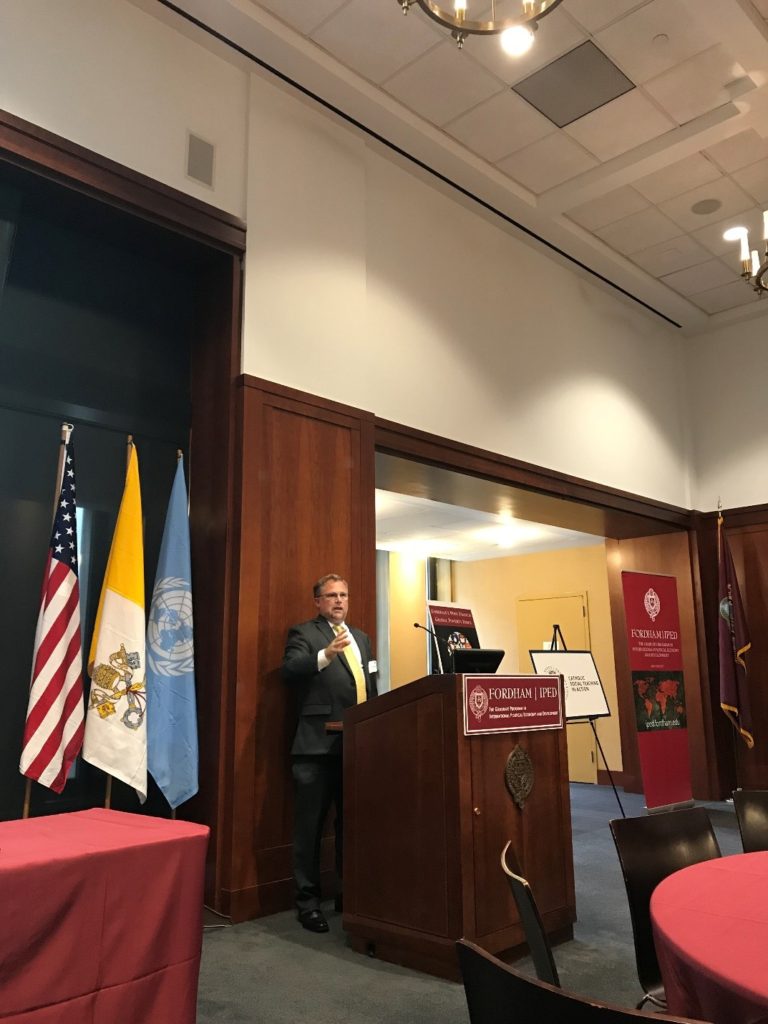
By: Shannon Bader ‘20
Professor Craig Gundersen, of the University of Illinois, passionately discussed the role of the Supplemental Nutrition Assistance Program (SNAP) at the CAPP-USA and Fordham University Conference last Friday. He was enthusiastic and optimistic: he believes that it is possible to solve the problem of hunger in the US, and that we can gain many insights from SNAP and apply them elsewhere. However, he was quick to caveat that he did not want to conflate the problem of food insecurity in the US with the problem in low-income countries.
Professor Gundersen highlighted the many ways in which SNAP is in line with the Catholic perspective. As a Catholic himself, he strives to promote policies that are consistent with Catholic teaching. He noted that several important theologians, up to and including Pope Francis, have emphasized the responsibility of the more fortunate to help others.

He also discussed the need to focus on positive claims for the right to food. A successful program must reach those in need. SNAP has eligibility criteria that beneficiaries must meet, and the benefit levels are a function of both income and family size. Secondly, the program must create effective mechanisms to get the benefits to those in need. SNAP successfully does this by issuing Electronic Benefit Transfer (EBT) cards to families that can then be used in retail food outlets. The administrative overhead costs for this program are negligible. Programs must also be fully funded. SNAP is an entitlement program, not a discretionary one, and helps around 42 million people. It also must provide enough to those in need. Professor Gundersen advocated the expansion of SNAP to include more people and further reduce food insecurity. Finally, programs must ensure the dignity and autonomy of recipients. In general, SNAP has no work requirements, but it also does not discourage work by eliminating benefits for those who are employed. It also allows recipients to make decisions about food choices rather than dictating what they may or may not purchase.
Professor Gundersen’s passion for this program was palpable throughout his speech and in the panel that followed. He was optimistic that an expansion of SNAP would help to eliminate food insecurity in the US, and that the merits of SNAP can be implemented in programs throughout the world. He also made sure to express that he was open to criticism and constructive feedback, as his goal is to make the program as successful as possible. Overall, his confidence in SNAP and enthusiasm for the program certainly spilled over into the audience, leaving participants hopeful that food insecurity can be reduced or eliminated.
